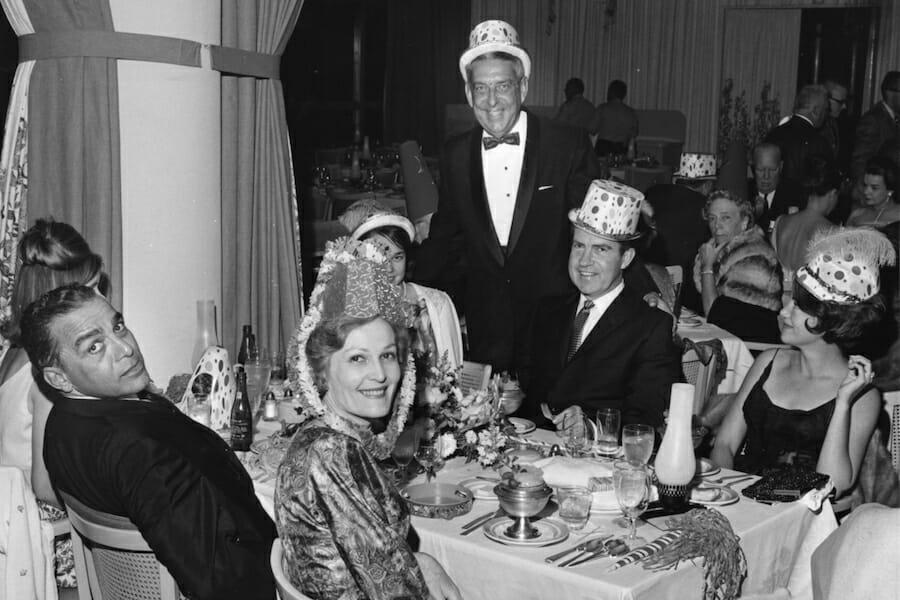
Culture
Why Americans Should stop Saying “I don’t Care”
As the year comes to an end, people around the globe are contemplating their New Year’s resolutions, which have begun to appear on social media sites like Facebook and Twitter. Americans are no exception. Popular resolutions like losing weight, drinking less, or quitting cigarettes abound but what if Americans experiment with a new resolution for the New Year: stop saying, “I don’t care.”
So far during my more than four-month stay in the United States, I have heard these words so many times that I think them subconsciously in an attempt to identify with Americans. Maybe I am trying to escape from the reality that is out of my control.
I came to the United States last fall on a student visa. The immediate cultural shock was minimal, big thanks to U.S. soft power. The scarcity of free Wi-Fi in Chicago O’Hare came as a shock. My first few days in the heart of the Midwest were cozy enough to quickly end any homesickness. Credit goes to a local couple- in their sixties- who welcomed me with warmth, friendship, and, of course, Midwest food. They are so caring that I don’t hesitate to call them my family — my American family.
Meanwhile I moved to my apartment in an off-campus housing complex with my American flat mate, I came to appreciate the lifestyle, manner and decency of the American people, at least Midwesterners. Far from the way that Hollywood defines America, sailor language is less pronounced among friendly gatherings; even less than the equivalent of what I have been exposed to back in my native Bangladesh. Alas, the halcyon days of the fall seemed to be ephemeral.
Soon I encountered a seemingly ubiquitous disinterestedness that worries me more than anything else about Americans. I became- and still remain- allergic to the overused phrase, “I don’t care,” which is prevalent among my neighbors, friends and acquaintances. The phrase is especially chronic among people of my age.
Whether it was my attempt to make my culture, language, rituals, or costumes known to my American friends, or my attempt to explain the scientifically proven benefits of some Bengali spices which I add to my food- all were readily discounted by the I-don’t-care-type-attitude of my American friends. The subtle apathy from the other side hurt me. I interpreted this as American loftiness. Yet I struggled to try to understand the rationale behind such cynical temperaments. Are Americans egocentric? No. Look at my generous host parents. Are they xenophobic? Nah! Many Americans in our housing complex share their flats with foreigners. Are they selfish? Honestly, I cannot say. So what are they?
Americans are perhaps self-righteously complacent. To my understanding, they don’t find it necessary to take an interest in something that has nothing to do with America. Just compare the nationwide clamor aroused by Ebola vis-à-vis the latest disappearance of an aircraft over the Pacific. Or, think of Russia’s swallowing of the Crimean peninsula. What percentage of the American people paid much attention to it with the exception of foreign policy junkies and media professionals?
The reason is intuitive. When you are guaranteed with the world’s every resource needed so that you can live life to the fullest and protected by a semi-functional government, you become disaffected by what is going on in the far-flung corners of the world.
At the same time, doesn’t this self-created seclusion run counter to the very idea of American-ness? The American people are frequently imbued with the moral authority to lead the world. Globalization, a pet term for U.S. policymakers, further complements a U.S.-dominated global system. If globalization is synonymous with interconnectedness, the American people are not in that global village either. They seem to be withdrawn. They love to see the whole world come together and chorus about the inevitability of a pervasive phenomenon that is globalization, but prefer not to pay attention to the disturbances swirling around a highly interwoven world.
Despite being bestowed with the tools to circumnavigate a world of the unknown, Americans do not bother to be confined in the cocoon of generalization. No wonder why a top rated talk show degenerates into an obnoxious brawl over Islam. Or, a job interviewer identifies Bangladesh as a city even though it is my nationality and is so stated on my resume.
I cannot help but wonder why this has to be like this. I am not generalizing that Americans are devoid of concerns. Of course not. But their antipathy is well pronounced. Can a nation that has worked so hard to transform itself into the leader of democratic values, freedom of speech and liberty sustain its leadership position when a majority of the citizenry show signs of smugness, an American smugness? If so, how long can it go on? Before looking into the future to seek the answer, I earnestly hope the American people would learn how to say “I don’t care” less.
